Cultural Criminology and Key Benefits for Policies: A Report
VerifiedAdded on 2023/01/07
|9
|484
|66
Report
AI Summary
This report delves into the subfield of cultural criminology, exploring its focus on the dynamic meanings underlying criminal justice processes and the definition of crime. It emphasizes how culture impacts crime practices and societal relations, examining symbolism and power dynamics to explain crime's causes and effects. The report highlights the role of cultural criminology in understanding behavioral patterns, identifying crime-related traits, and enhancing the justice system. It discusses the challenges faced by cultural criminology in theory and method, emphasizing its importance in effective justice administration. The report references key scholars like Katz and Ferrell, and concludes by summarizing the concept's importance in the context of law and justice.
1 out of 9
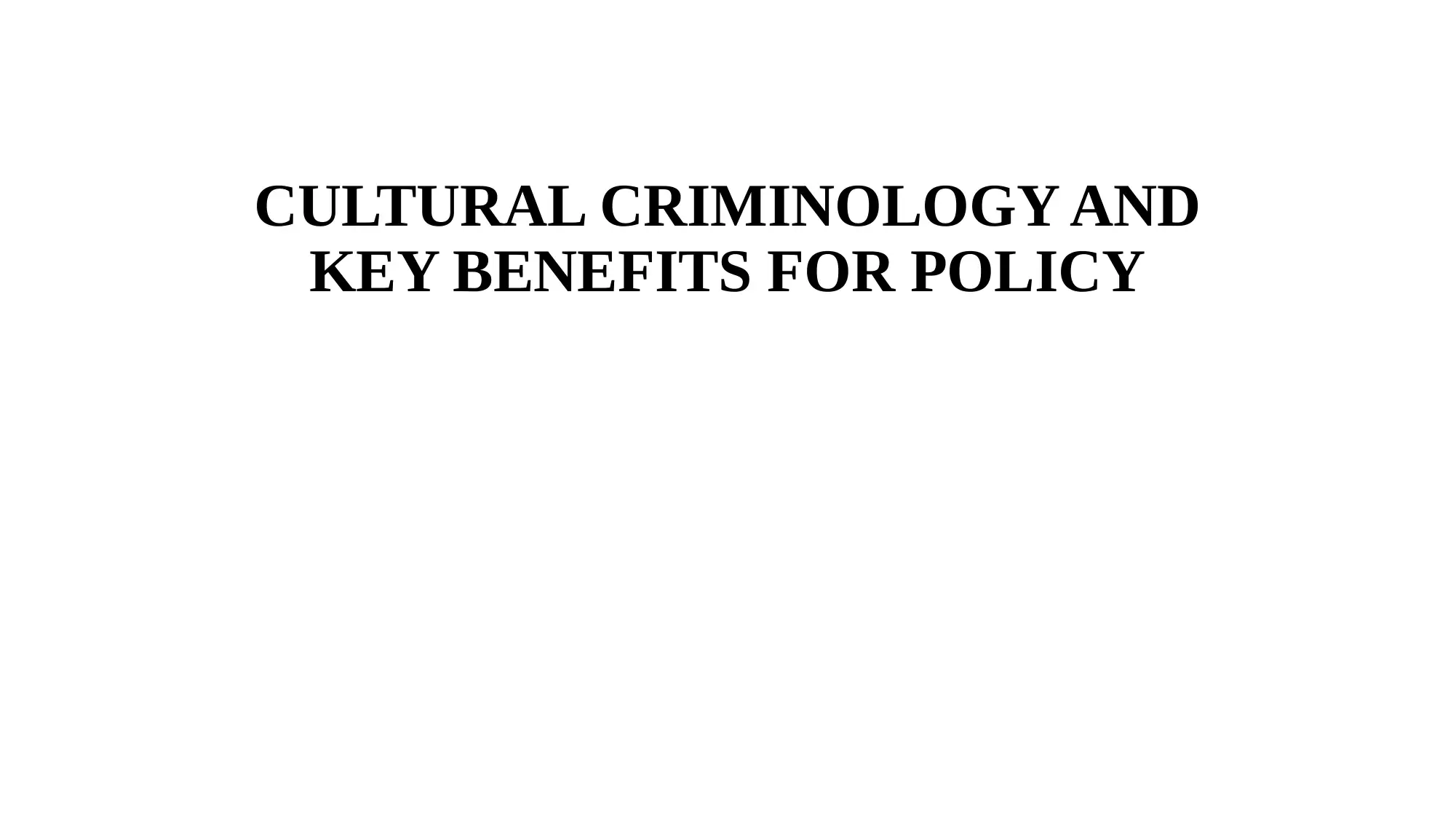
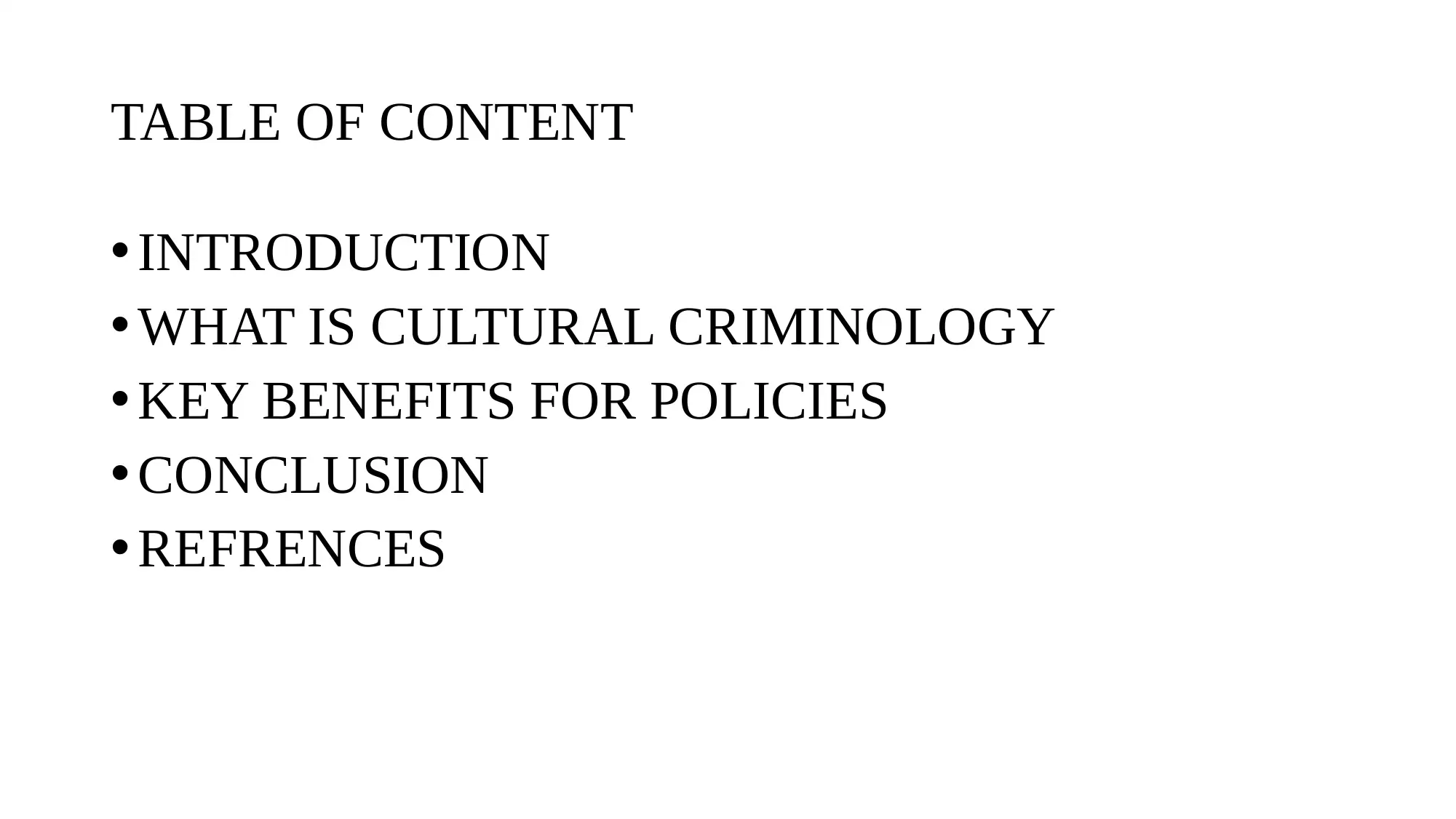
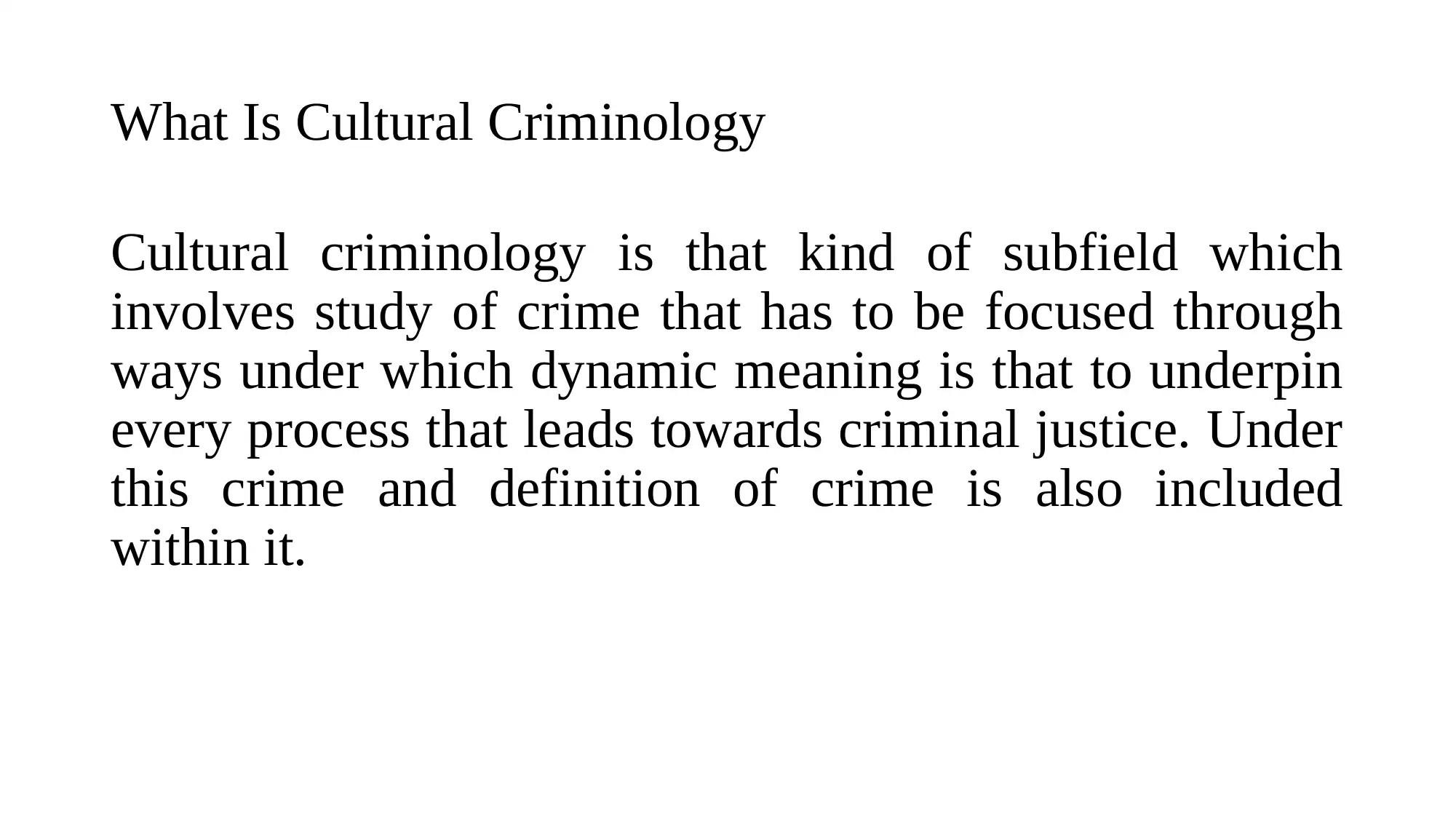

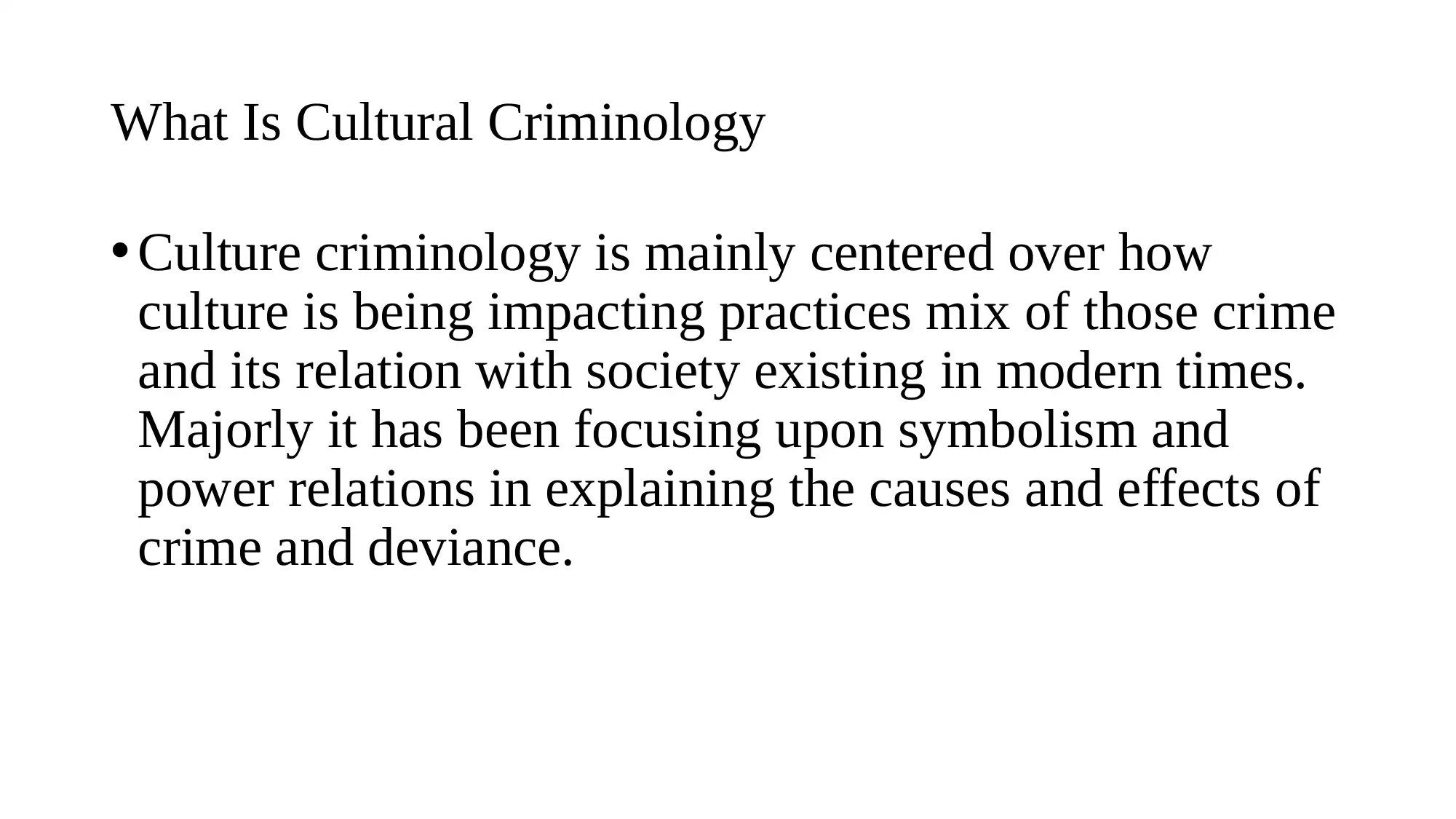
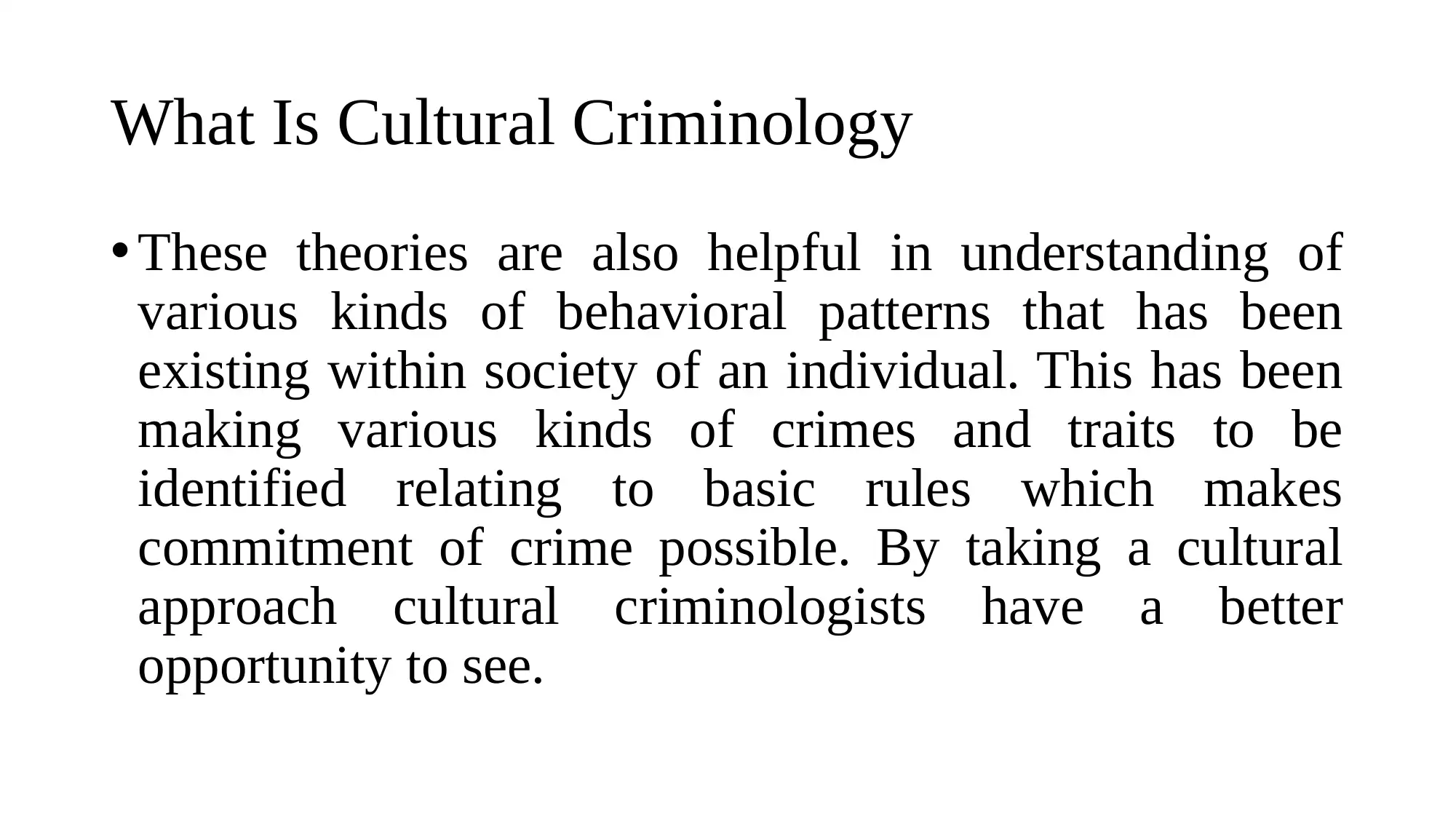
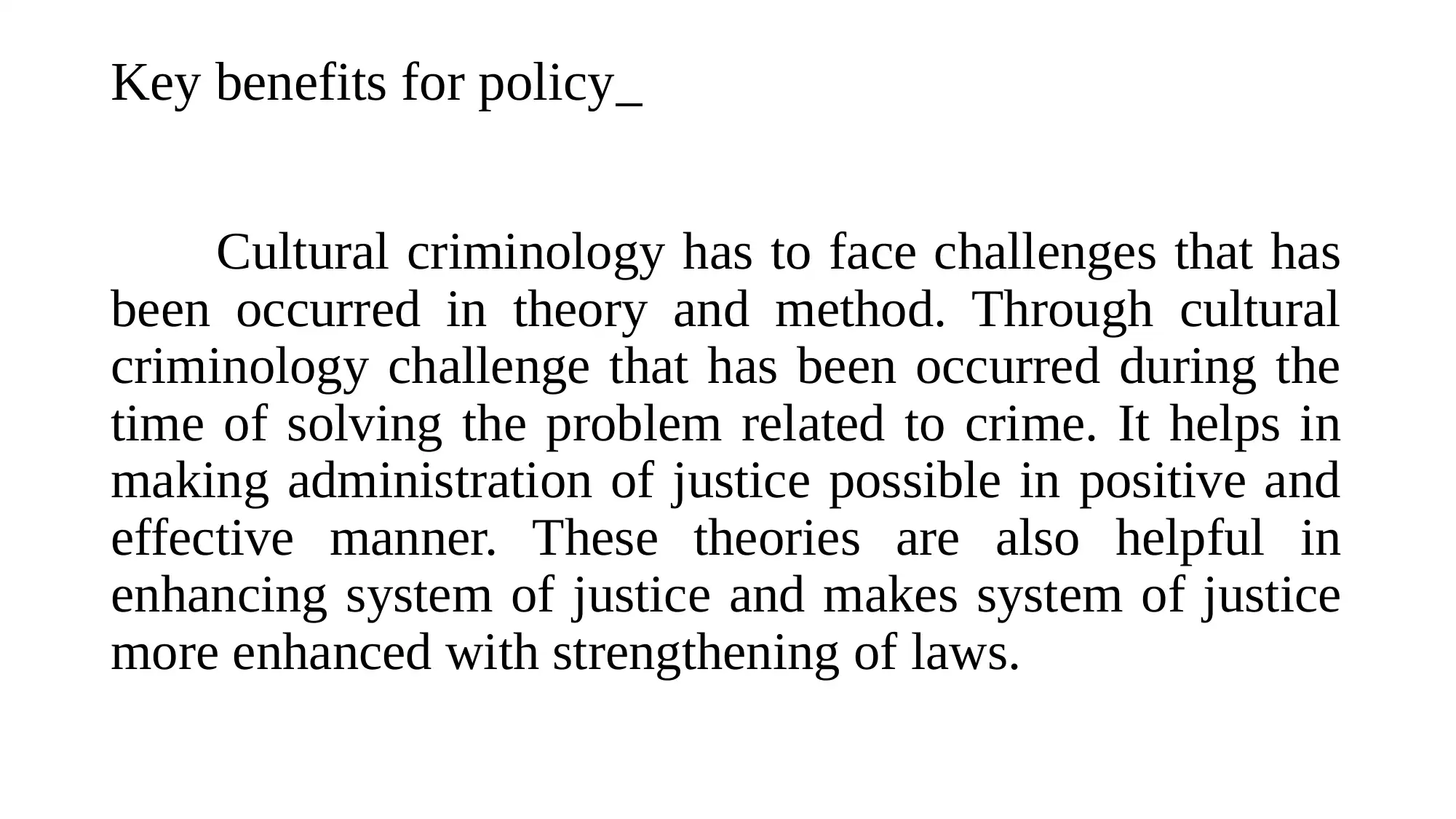
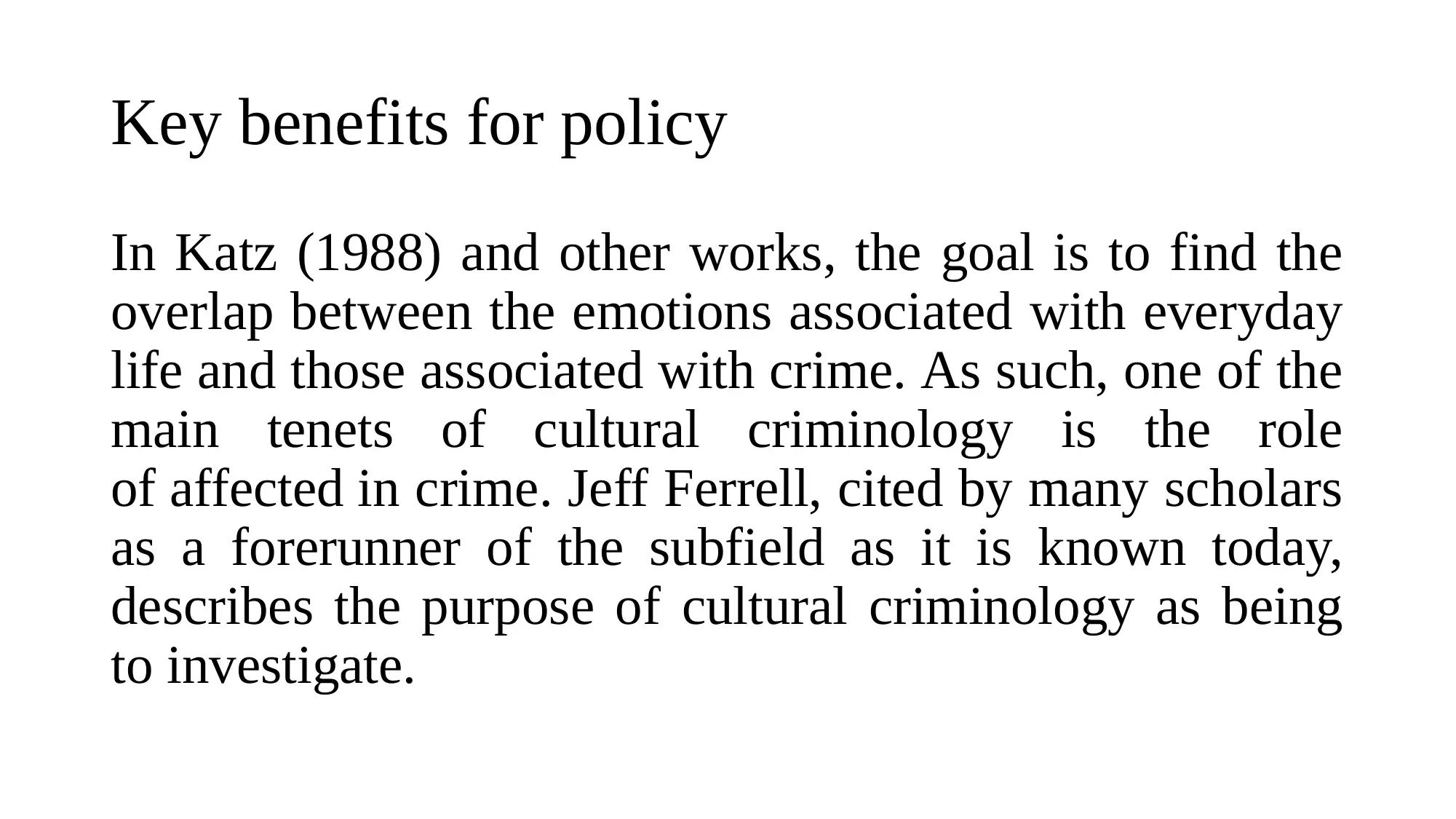
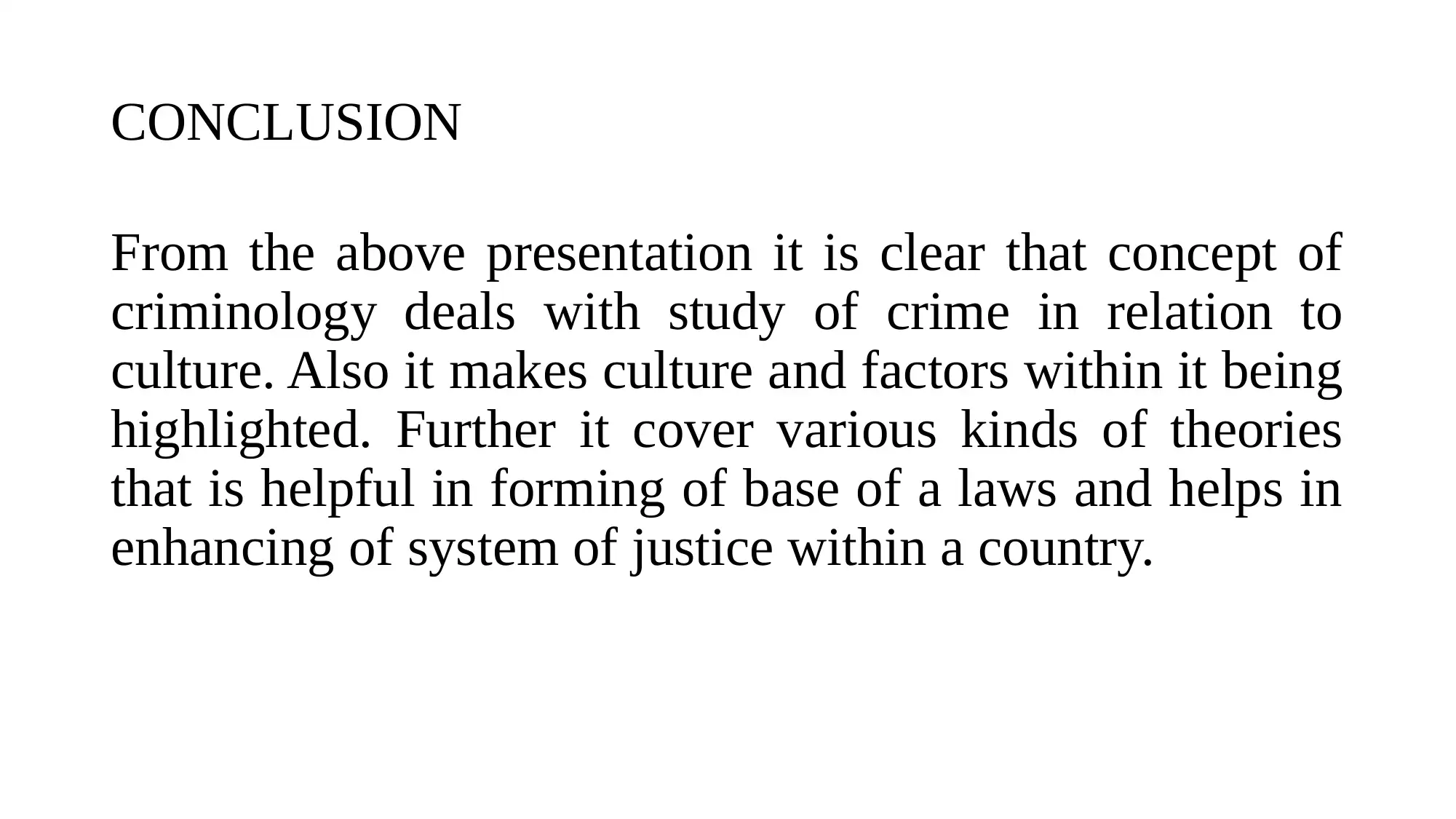
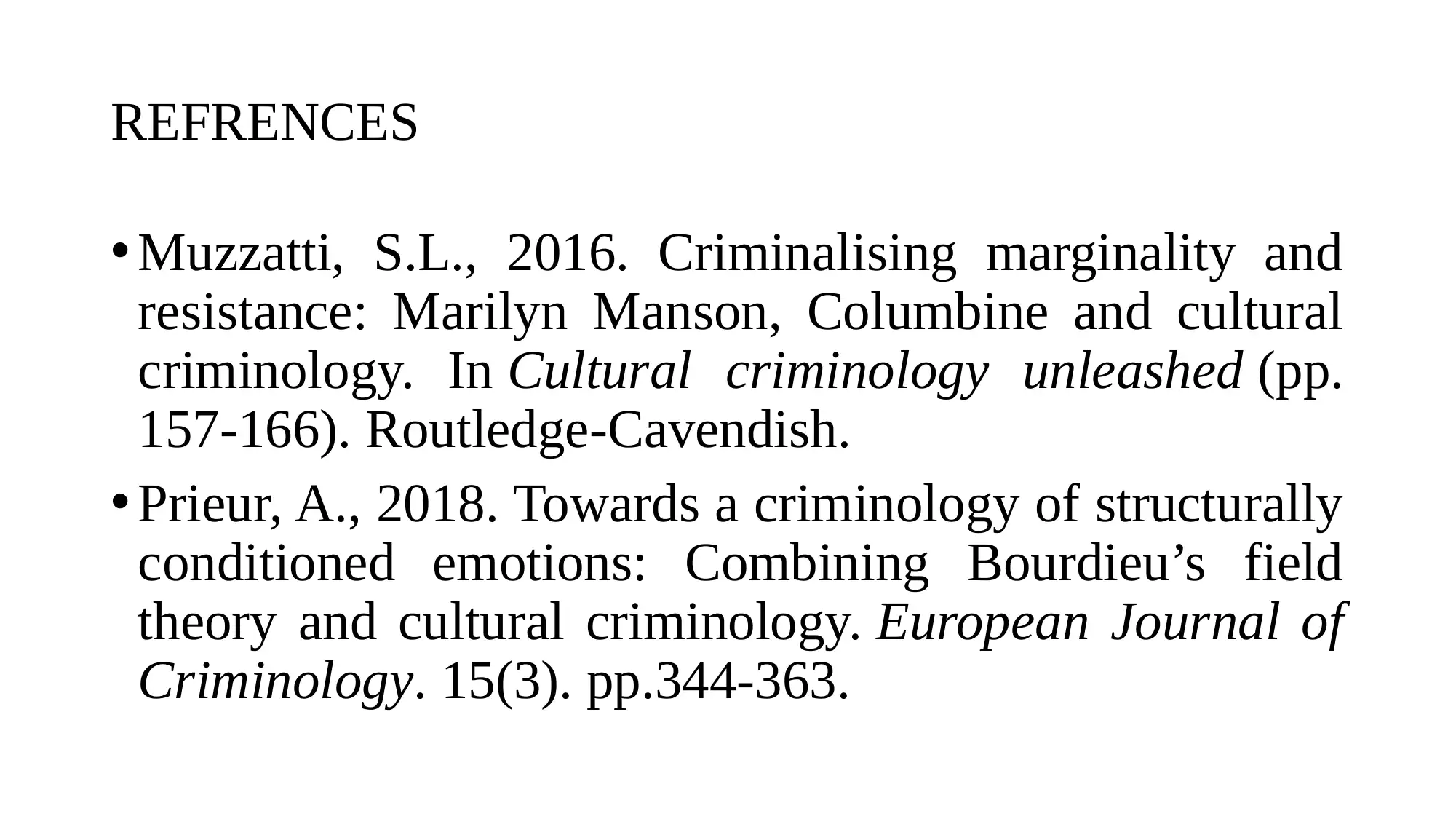






![[object Object]](/_next/static/media/star-bottom.7253800d.svg)